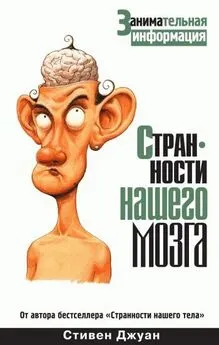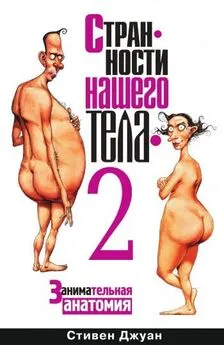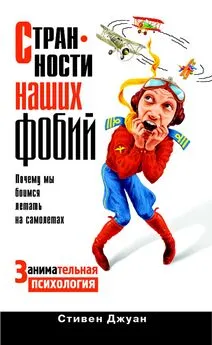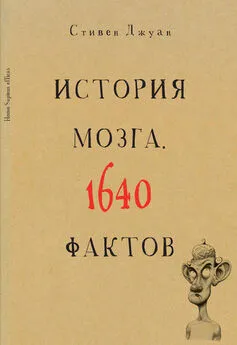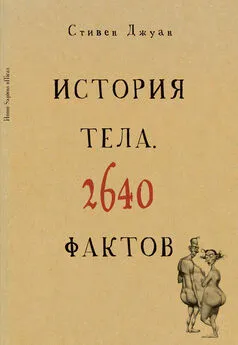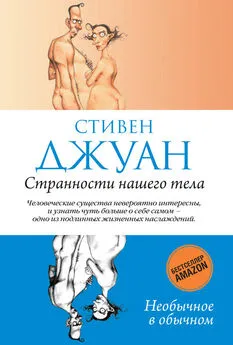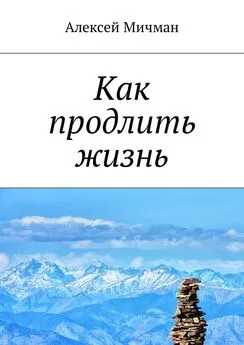Стивен Джуан - Могут ли поцелуи продлить жизнь?
- Название:Могут ли поцелуи продлить жизнь?
- Автор:
- Жанр:
- Издательство:Литагент «РИПОЛ»15e304c3-8310-102d-9ab1-2309c0a91052
- Год:2011
- Город:Москва
- ISBN:978-5-386-02692-9
- Рейтинг:
- Избранное:Добавить в избранное
-
Отзывы:
-
Ваша оценка:
Стивен Джуан - Могут ли поцелуи продлить жизнь? краткое содержание
Доктор Стивен Джуан – ученый-антрополог, автор мировых бестселлеров «Странности нашего тела» и «Странности нашего мозга». Родился и вырос в США, сейчас живет в Австралии, где преподает в университете и выступает на радио и телевидении. В новой книге доктор Джуан продолжает искать объяснение самым странным странностям нашей жизни.
Можно ли доверять детектору лжи?
Почему беременных тошнит по утрам?
Почему одних людей комары кусают чаще других?
Можно ли клонировать неандертальца?
Можно ли определить характер человека по его ушам?
Ответы на эти и другие вопросы вы найдете в этой книге.
Могут ли поцелуи продлить жизнь? - читать онлайн бесплатно ознакомительный отрывок
Интервал:
Закладка:
L. Cuevas and C. Hart, ‘Chemoprophylaxis of bacterial meningitis’, Journal of Antimicrobial Chemotherapy, 1993, vol. 31, suppl. B, pp. 79–91.
238
Drs Rosemary Hallett, L.A. Haapanen and S.S. Teuber are from the School of Medicine at the University of California in Davis.
239
R. Hallett et al., ‘Food allergies and kissing’, New England Journal of Medicine, 2002, vol. 346, no. 23, pp. 1833–1834.
240
Dr H. Kimata is from the Department of Allergy at Satou Hospital in Osaka.
241
H. Kimata, ‘Kissing selectively decreases allergen-specific IgE production in atopic patients’, Journal of Psychosomatic Research, 2006, vol. 60, no. 5, pp. 545–547.
242
Drs K. Floyd, J. Boren, A. Hannawa, B. McEwan and A. Veksler are from the Department of Communication at Arizona State University.
243
K. Floyd et al., Kissing in marital and cohabiting relationships: Eff ects on blood lipids, stress, and relationship satisfaction’, Western Journal of Communication, 2009, vol. 73, no. 2, pp. 113–133.
244
R. Gordon (ed.), Ethnologue: Languages of the World (15th edn), Summer Institute of Linguistics, Dallas, 2005, p. 122.
245
Dr Michael Cole is a professor of psychology at the University of California in San Diego.
246
M. Cole and S. Cole, The Development of Children (4th edn), Worth Publishing, San Francisco, 2001.
247
S.Juan, ‘Umm…’, The Register, 6 May 2006.
248
E. Tan, A. Ciger and T. Zileli, ‘Whistling epilepsy: A case report’, Clinical Electroencephalography, 1990, vol. 21, no. 2, pp. 110–111.
249
T. Murray, ‘Dr Samuel Johnson’s movement disorder’, British Medical Journal, 1979, vol. 1 (6178), pp. 1610–1614.
250
S.Juan, ‘What’s happened to whistling?’, The Register, 2 June 2006.
251
S.Juan, ‘Not just whistling Dixie’, National Post, 25 July 2006.
252
S.Juan, ‘How do I taste things?’, The Register, 4 August 2006.
253
Drs T. Manrique, I. Moron, M. Ballesteros, R. Guerrero and M. Gallo are from the Institute of Neurosciences F. Oloriz of the Department of Experimental Psychology and Physiology of Behaviour at the University of Granada in Spain.
254
T. Manrique et al., ‘Hippocampus, ageing and taste memories’, Chemical Senses, 2007, vol. 32, no. l. pp. 111–117.
255
C. Wysocki, ‘Do people lose their senses of smell and taste as they age?’, Scientifi c American, June 2003, p. 107.
256
J. Varasdi, Myth Information: More than 590 Popular Misconceptions, Fallacies and Misbeliefs Explained, Ballantine, New York, 1996, p. 234.
257
S. Juan, ‘Is it possible to swallow while standing on your head?’, The Register, 11 August 2006.
258
S. Juan, ‘Great moments in human research’, The Register, 27 January 2007.
259
S. Juan, The Odd Body: Mysteries of Our Weird and Wonderful Bodies Explained, HarperCollinsAustralia, Sydney, 1995, p. 97.
260
S. Juan, Why are we not irritated by the volume of our own voice?’, The Register, 22 September 2006.
261
Drs Robert Krauss, R. Freyberg and E. Morsella are from the Department of Psychology at Columbia University.
262
R. Krauss et al., ‘Inferring speakers’ physical attributes from their voices’, Journal of Experimental Social Psychology, 2002, vol. 38, pp. 618–625.
263
Drs Susan Hughes, M. Harrison and G. Gallop are from the Department of Psychology at the State University of New York in Albany.
264
S. Hughes et al., ‘The sound of symmetry: Voice as a marker of developmental instability’, Evolution and Human Behaviour, 2002, vol. 23, pp. 173–178.
265
S. Hughes, F. Dispenza and G. Gallop, Ratings of voice attractiveness predict sexual behaviour and body configuration”, Evolution and Human Behaviour, 2004, vol. 25, pp. 295–304.
266
S. Juan, ‘What can you learn from the sound of someone’s voice?’, The Register, 6 October 2006.
267
Dr William Sharp is from the Department of Psychology at the University of Mississippi in Oxford.
268
W. Sharp, C. Sherman and A. Gross, ‘Selective mutism and anxiety: A review of the current conceptualization of the disorder’, Journal of Anxiety Disorders, 2006, vol. 21, no. 4, pp. 568–579.
269
S. Juan, ‘What is selective mutism?’, The Register, 9 December 2006.
270
S.Juan, ‘Why do we open our mouths to yawn properly?’, The Register, 13 January 2007.
271
Dr G. Hauser is from the Histological and Embryological Institute of the University of Wien in Germany.
272
G. Hauser, A. Daponte and M. Roberts, ‘Palatal rugae’, Journal of Anatomy, 1989, vol. 165, pp. 237–249.
273
Dr Jonathan Kantor is from the Department of Dermatology at the University of Pennsylvania Medical Centre in Philadelphia.
274
J. Kantor, Medical Encyclopedia: Body Lice, US National Library of Medicine and the National Institutes of Health, Bethesda, Maryland, 19 May 2005.
275
S. Juan, ‘What lies without: Life on the human body’, The Register, 2 June 2006.
276
Drs N. Agarwal, A. Kriplani, A. Gupta and N. Bhatia are from the Department of Obstetrics and Gynaecology at the All India Institute of Medical Sciences in New Delhi.
277
N. Agarwal et al., ‘Management of gigantomastia complicating pregnancy. A case report’, Journal of Reproductive Medicine, 2002, vol. 47, no. 10, pp. 871–874.
278
S. Juan, ‘Is it true that a woman’s breasts can grow enormously overnight?’, The Register, 13 January 2006.
279
Drs J.M. Wu, A. Mamelak, R. Nussbaum and P. McElgunn are from the School of Medicine at the University of Sheffi eld.
280
J. Wu et al., ‘Botulinum toxin A in the treatment of chromhidrosis’, Dermatological Surgery, 2005, vol. 31, no. 8 (pt 1), pp. 963–965.
281
Dr Stephen Amon is head of the Infant Botulism Prevention Program at the California Department of Health Sciences in Sacramento.
282
Dr A. Boer is a dermatologist in Hamburg, Germany.
283
A. Boer, ‘Patterns histopathologic of Fox-Fordyce disease’, American Journal of Dermatopathology, 2004, vol. 26, no. 6, pp. 482–492.
284
M. Sims, Adam’s Navel: A Natural and Cultural History of the Human Body, Allen Lane, London, 2003, pp. 13, 28, 44.
285
S. Juan, ‘Why don’t humans moult?’, The Register, 26 June 2006.
286
M. Rogers, ‘They’ve got a hide!’, Medical Observer, (Sydney) 8 November 2002, p. 56.
287
S. Juan, ‘Was human skin really used in book binding?’, The Register, 4 August 2006.
288
Dr Peter Cave is a philosopher at the Open University, City University of London.
289
P. Cave, ‘Birthday special: John Stuart Mill’, Philosophy Now (London), May-June 2006, pp. 26–29.
290
S. Juan, ‘Making rash judgment on philosopher’s death’, National Post, 7 November 2006, pp. 1–2.
291
Dr Sarah-Jayne Blakemore is from the Institute of Cognitive Neuroscience at the University College in London.
292
S. Blakemore, ‘Deluding the motor system’, Consciousness and Cognition, 2003, vol. 12, issue 4, pp. 647–655.
293
Dr D.S. Bennett is from the MCP Hahnemann University in Philadelphia.
294
D. Bennett, M. Bendersky and M. Lewis, ‘Facial expressivity at 4 months: A context by expression analysis’, Infancy, 2002, vol. 3, no. 1, pp. 97—113.
295
Dr M. Blagrove is from the Department of Psychology at the University of Wales in Swansea.
296
M. Blagrove, S. Blakemore and B. Thayer, ‘The ability to self-tickle following Rapid Eye Movement sleep dreaming’, Consciousness and Cognition, 2006, vol. 15, no. 2, pp. 285–294.
297
S. Juan, ‘What is the purpose of tickling?’, The Register, 1 September 2006.
298
J. Varasdi, Myth Information, p. 218.
299
S. Juan, ‘Why do your hands turn white when you wash the dishes?’, The Register, 1 September 2006.
300
Dr R. James Swanson is from the Faculty of Biological Sciences at Old Dominion University in Norfolk, Virginia.
301
Personal communication, 2 February 2006.
302
S. Juan, ‘Why do you sometimes shiver when you wee?’, The Register, 1 September 2006.
303
Dr Randolph Morgan is director of the Insectarium at the Cincinnati Zoo in Ohio.
304
D. Feldman, What are Hyenas Laughing at, Anyway? G.P. Putnam, New York, 1995, p. 179.
305
New Jersey Mosquito Control Association, FAQs on Mosquitoes, Rutgers University, New Brunswick, New Jersey, 24 October 2006.
306
Dr James Logan is from the Rothamsted Research Institute in Herfordshire, UK, and Professor Jenny Mordue is from the University of Aberdeen in Scotland.
307
Biotechnology and Biological Sciences Research Council, ‘Biting back at fl ies’, BBSRC Business (London), January 2005, pp. 14–15.
308
C. Ray, ‘Mosquitoes and genes’, New York Times, 16 September 2003, p. D4.
309
New Jersey Mosquito Control Association, FAQs on Mosquitoes, Rutgers University, New Brunswick, New Jersey, 24 October 2006.
310
Dr Leslie Saul-Gershenz is the director of Entomology at the San Francisco Zoological Society.
311
D. Feldman, What are Hyenas Laughing at, Anyway? p. 178.
Читать дальшеИнтервал:
Закладка:


